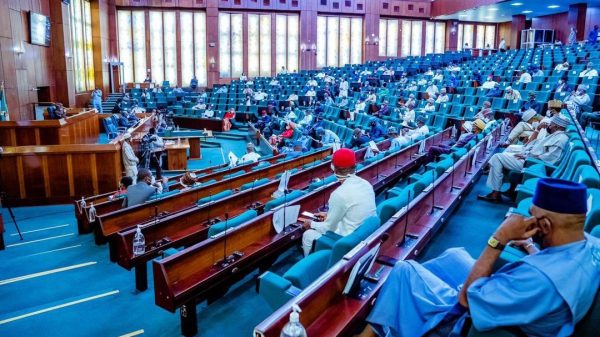Kashim Shettima, vice president and the thirty-six states governors has met at the National Economic Council (NEC) to discuss urgent economic issues facing the country.
The NEC meeting was held at the state house in Abuja.
Current economic issues in the Nigerian economy which include inflation rates, fuel price hikes, and palliative amongst others formed the focus of the meeting.
NEC headed by the vice president is comprised of the 36 governors of the federation, the governor of the Central Bank of Nigeria (CBN) group chief executive officer of Nigeria National Petroleum Company (NNPC) Limited, Mele Kyari and other representatives from the finance ministry and others.
Ademola Adeleke of Osun, Abdullahi Sule of Nasarawa and the deputy governor of Enugu state, Ifeanyi Ossai were the first set of participants to arrive at the council chambers.
Also present are, the governors of Gombe, Inuwa Yahya; Zamfara, Dauda Lawan; Katsina, Dikko Radda; Kwara, Abdulrahman Abdulrazak; Abia, Dr. Alex Otti; and Lagos, Babajide Sanwo-Olu.
Others are Bauchi, Bala Mohammed; Kaduna, Uba Sani; Delta, Sheriff Obrevwori; Kebbi, Nasir Idris; Anambra, Prof. Charles Soludo; Edo, Godwin Obaseki; Deputy governor of Kogi, David Onoja; Jigawa, Umaru Namadi; Yobe, Mai Mala Bunu; Bayelsa, Duoye Diri; Akwa-Ibom, Umo Eno; Cross River, Prince Bassey Otu; Ondo State acting governor, Lucky Aiyedatiwa; Ogun, Dapo Abiodun; Sokoto, Ahmad Aliu; Plateau, Caleb Mutfwang; Benue, Hyacinth Alia; and Imo, Hope Uzodimma.
Bala Mohammed, governor of Bauchi briefed state house correspondents after the meeting, said that it was resolved that a committee be set up to appraise the recommendation with regards to how funds would be sourced and the mode of disbursement.
“NEC has taken very far-reaching decisions and deliberations on the issue of the removal of petroleum Premium Motor Spirit subsidy and its general impact on the economy, the federation and the sub-nationals, including workers and everybody, that are vulnerable.
“Specifically on the issue of National Salaries, Income and Wages Commission, NEC has received recommendations on the various ways and means that the country can use whatever increases that we have in the revenue to mitigate the impact that is going to make on the lives of our workers and all those people involved.
“They gave us a scenario recommending that there should be a consequential adjustment, estimated at ₦702.9 billion as part of the allowances that should be given as petroleum allowance to all workers and as well as a ₦23 or ₦25 billion monthly offer to cushion the effect on workers.
“There were other suggestions that will go a long way in making sure that there is a review of salaries and wages.
“In addition to the palliative, the government looked at all the issues, the challenges and problems holistically and set up a small committee of council to review and come up with a term of reference to organised areas, specifically where this palliative can come and how it will be dispensed to alleviate the problem of workers and other vulnerable groups’, he said.’
Recall that on Tuesday, President Bola Tinubu ordered the release of fertilisers and grains to 50 million households across the country.
He also directed the review of the proposed N8,000 cash conditional transfer (CCT) to poor households for six months as a post-subsidy palliative.
